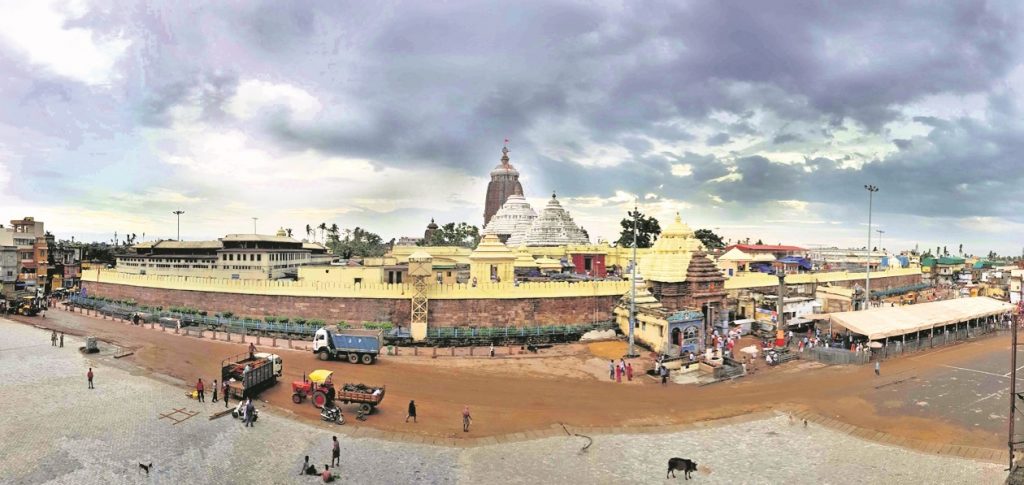Puri: Work for developing Puri, the abode of Lord Jagannath into a heritage site has begun. The Revenue officials have measured the land required for laying the ambitious seven kilometre-long four lane road linking Malatipatpur bus stand to Jagannath Ballav and construction of the multilayer parking place.
Official sources said forty acres of land was needed to be acquired to lay the connecting road to NH 316. While a major portion of land was government and belong to Sri Jagannath temple, about ten acres need be acquired from private persons.
Notice inviting tenders for construction of the road would be issued soon, the official said.
In another development the municipal administration had issued notice to about sixty shop owners in Mahodadhi municipal Market at Mochisahi to vacate by October 4 next.
The single story market complex built in 1973 is in a very poor condition and declared unsafe. Its roof is in bad shape. After demolition a multi storied market complex would be erected in its place and shops would be allotted to displaced businessmen. The existing shop owners would be allotted shops on priority basis, said Puri Municipal Executive officer Bijay Kumar Das.
The soil test for construction of a rail over bridge at the Matiapada level crossing along the Puri -Konark NH 316 has been completed.
Meanwhile, Voice of Common Man Convener Hactor Mishra in a letter to Puri district collector Balwant Singh said the demolition of old building of GeD near the office of police SP had caused a severe damage to the historical place of Puri. Mishra said the GeD building was operating in the town from pre-independence era and with the demolition a piece of historical evidence was lost.
The building housed the first electric power generator of this city. Way back in 1912, Puri residents experienced the lighting of first electrical bulb. This heavy duty kerosene run power generator set was brought by British officers to Puri through Haladia port via Cuttack. It was manufactured by Enfield BSA, Glasgow, England and was supplying power to salt companies and the Governor’s House.
The generator set older than a century was a piece of history and should have been placed in museum for future generation to see, he said.
Mishra requested the collector to direct the officials to preserve the important artifacts before demolition of other such historical buildings.
(UNI)
